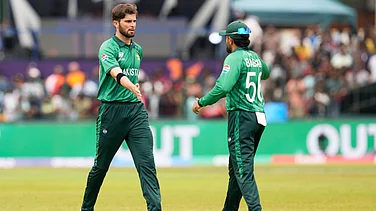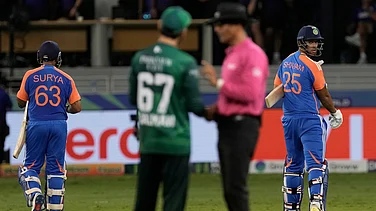Comparing the Indian team and its administrators to the nouveau riche class, Haigh says that it's like suddenly having a lot of money but not knowing really how to dispense favours. "You get from them a new sense of First World assertiveness combined with a Third World 'chippiness', or chip-on-the-shoulder attitude...they seem to be far more interested in influencing people than winning friends," he says.
Haigh feels that having flexed their muscles, the situation now requires a certain magnanimity contributing to the game's benefit rather than just India's benefit. "Actually, India could win a lot of friends by making a stand but making it responsibly...there is a danger always that India gets perceived abroad as a nation of effigy burners...."
Having gone tough on the Indians, Haigh has little sympathy for the Australian team either and does not believe the recent events have improved Ricky Ponting's ratings. "He (Ponting) already has a bit of an image problem in Australia. His reputation here is based very much on his being a very good player. He has not made a successful persona in the way that Allan Border or Mark Taylor managed. I think there are Australians who are a little bit embarrassed by having someone like Ponting as captain. He does not enjoy the same kind of authority," Haigh continues.
"The awful thing to me is that the Australians don't seem to have any conception of what's really gone on. In their remarks since the Test match they have fallen back on the defensive 'Oh, we did not break any laws or rules' and of course that is not the point. This is about the essence of cricket, not the stuff that is on paper."
"Players tend to be very narrow and literal in their focus when it comes to things like this. They conceive of their job as winning Tests and scoring runs and taking wickets, they don't see any particularly higher duty for themselves. Well, I have got news for them. The Aussie public does not share that view and frankly a reason the public here has supported the Australian team so fervently in the past is that they believe there are certain transcendent views about cricket and it's not simply about winning and losing," Haigh says.
But Peter Young, head of publicity at Cricket Australia and known to be a man of measure, says the Australians are constantly striving to improve themselves, not just their game. "The players went through a major workshop in '03 and what came out of it was a commitment to the spirit-of-cricket pledge. And that's what they talk about in their private meetings wherever they can. Even when they won the Ashes 5-0 against England and then an unprecedented third World Cup, they were pausing to ask how they could improve—and this was not about taking more runs or wickets, but how they could improve in other ways," Young says.
Experts at sledging with an aggressive win-at-all-costs attitude, the tables were turned on them when Harbhajan Singh allegedly called Andrew Symonds a "big monkey". "I think, ironically, he was being kind of Australian! That's the weird thing about it," says Haigh. "Australians are adept at using a word or phrase that annoys a particular player most. The disorienting thing in the current set-up is that they have kind of mastered this behaviour in the last 20 years. They have made it look as though there is a direct connection between verbal aggression and psychological ascendancy and cricketing excellence. Now, of course, other countries have watched that and they have fallen victim to the same assumption...they're all trying to play the Australian game. You saw the English in 2005, they were trying to out-Australian the Australians."


























